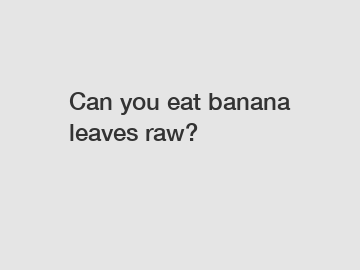What are the benefits of frozen fruit and vegetables?
What are the benefits of frozen fruit and vegetables?
We can now buy and use a variety of foods whenever we want, which inevitably leads people to keep frozen fruits and vegetables in the freezer as an easy and convenient option.
But isn't it bad to rely on frozen fruits and vegetables as your main source of produce?
Now let us get you some facts and finally you can decide if eating frozen fruits and vegetables is harmful.
The nutrient levels in frozen fruits may actually be higher because they are usually harvested at peak ripeness. Frozen fruits are picked, blanched, cooled (to prevent cooking) and frozen after harvest - all within a few hours of harvest. This process helps preserve the nutrients in the food, whereas fresh produce typically loses some nutrients during transport to market.
And that's not the only benefit. According to the United Nations, nearly one-third of the food produced each year is wasted. "Buying frozen fruit helps reduce food waste because it can be stored and eaten at our convenience, whereas fresh fruit has a shorter window of time and must be consumed before it goes bad." Although it has a longer shelf life than fresh produce, it's important to remember that frozen fruit won't last forever. Here are tips to explain.
1. Nutritional content
It is a common misconception that frozen produce is not as nutritious as fresh.
Explore more:The Charm and Functionality of Cow Milk Pitchers: A Timeless Addition to Your Kitchen
What are Advantages and Disadvantages of frozen vegetables?
What Is Cranberry Powder Good for?
How Long Do Walnuts Last: Freshness Guide and Storage Tips
Benefits of Eating Chineses Snow Pear
Discover Fresh Houba Leaves: A Nutritional Powerhouse for Optimal Health!
The 7 Best Frozen Vegetables to Eat
But when farmers freeze fruits and vegetables, the nutrients are locked in.
This process maintains higher levels of heat-sensitive nutrients, such as B vitamins, vitamin C and antioxidants, for a longer period of time.
In fact, studies have found that 66% of frozen produce contains more vitamin C and multiple antioxidants than fresh produce kept in the refrigerator for 3 days.
2. Affordability
There are two ways to make frozen a more affordable produce option.
Frozen produce is often less expensive than fresh produce.
This is because it takes longer to spoil and is usually harvested at the peak of that fruit or vegetable's season.
Frozen produce also minimizes food waste.
Since they typically last 3 months in the refrigerator, frozen foods are less likely to "disappear" than fresh foods that may last a week or less, which is good for your back pocket.
3. Accessibility
A final benefit of frozen fruits and vegetables is that they are available year-round.
If you wish, you can purchase frozen mango cheeks in mid-winter and add them as an extra to your Super Cubes frozen smoothies or add them to the top of your frozen smoothie bowl.
What is pomegranate powder good for?
Which Customized Houba Leaves For Sushi Food can enhance the purchase experience?
What does unhealthy bamboo look like?
Can You Freeze Spring Onions?
Which 17cm Square Bamboo Leaves are Worth Buying?
Which bamboo leaves offer the best value for the purchase stage?
What is the use of dry bamboo leaves?











